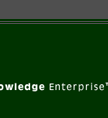 |
 |
 |
 |
 |
 |
 |
|
|
|
|
|
|
|
|
|
|
Case Studies: Is This Your Business? Q: We are trying to write a mission statement for our company. But most of the ones I see are innocuous and insipid. Isn't a mission supposed to be more than that? ? A: A mission is one of the most important parts of the strategic planning process because it often sparks organizational and operation changes that are then included in the strategy. A mission statement is a (usually) one-paragraph statement of a company's values and plans that leads off a broader strategic plan. In essence it sums up all its various strategies in a clear, pointed, and inspirational statement. It can be large, or extremely simple, but it is always a declaration of intent. Simply, a mission is a broad statement of what an organization ultimately wants to become. It often includes specifics about markets, service areas, profitability, budgets, quality of life, and reputation, and it also can touch on values an organization holds dear. Determining a mission can be complicated and often requires some deep thought by a company's management. Because of the definitive qualities of a mission statement, it has high importance both within an organization and without. The mission statement can act as a kind of guiding beacon for all staff within a company who, if they understand it and subscribe to it, will work as one to reach it. For management it provides a mini-road map to the future. For those outside a company, such as customers, it answers basic questions they invariably will ask: Who are you; What do you do; When do you do it; Why do you do it; and increasingly, How do you do it? A mission statement tells those in the outside world what a company stands for, what it believes in, and how it will achieve it. In the modern world, where customers care more about these issues, it has taken on more importance as the company's "soul". Because so many business people are uncomfortable with this kind of visioning (preferring day to day management instead), the mission statements of many companies, particularly very large companies, are bland, meaningless, and sweeping statements like "Acme Company will serve the needs of its customers to the best of its ability". However, modern strategic planning methodology is ending this practice, which was all too common only a few years ago. Useful questions to ask and answer when composing a mission include:
(c) 2004, KnowPreneur Consultants |
|